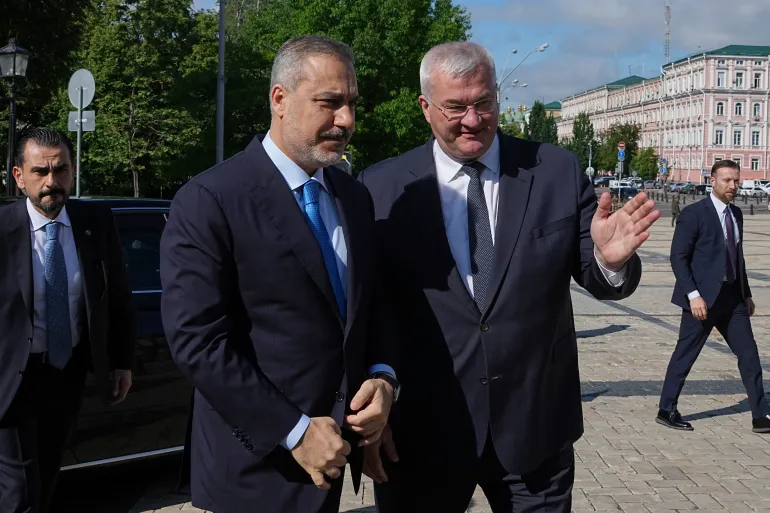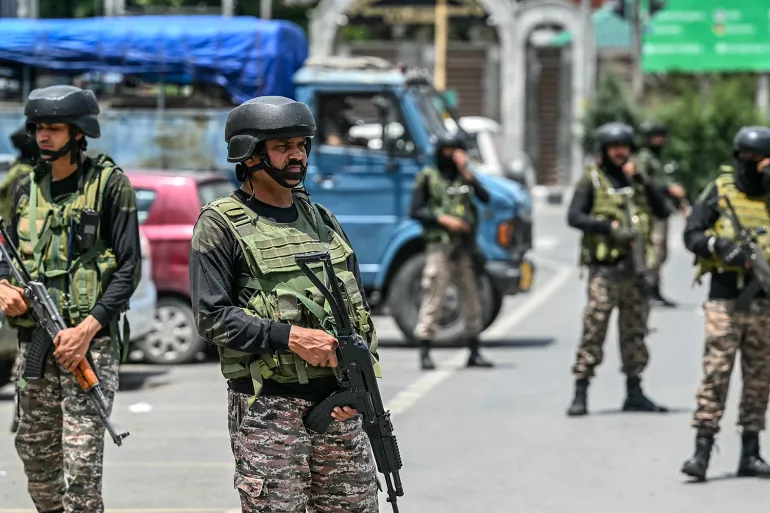Ukraine has yet to confirm its participation in a newly proposed round of peace negotiations with Russia, which is scheduled to take place in Istanbul. The uncertainty comes as international pressure mounts on both sides to seek diplomatic solutions to end the prolonged and deadly conflict.
According to diplomatic sources, Moscow has expressed its readiness to attend a new series of talks hosted by Türkiye. The initiative is reportedly aimed at reviving stalled diplomatic efforts to de-escalate the war, now in its third year. The Turkish government has offered to mediate the talks and provide a neutral venue, continuing its role as a facilitator in earlier negotiation attempts.
However, Ukrainian officials have not officially responded to the proposal. Kyiv remains cautious, stating that any dialogue must be grounded in clear commitments from Moscow regarding territorial integrity, troop withdrawals, and war crimes accountability. Ukrainian authorities have reiterated that the country’s sovereignty is non-negotiable.
“We are examining all options, but we will not enter talks just for the sake of optics,” said a senior Ukrainian diplomat. “Our position remains firm: Russia must first demonstrate serious intent toward ending its aggression.”
The Istanbul proposal is seen as part of broader international efforts to push both countries toward a ceasefire and eventual peace settlement. The United Nations and European Union have both voiced support for renewed diplomatic engagement but have also acknowledged the significant barriers still in place.
The Kremlin, meanwhile, has signaled openness to dialogue but insists that any negotiations must take into account what it calls “new realities on the ground,” referencing its occupation of Ukrainian territory. Russian officials continue to accuse the West of prolonging the conflict by supplying weapons to Kyiv.
“We are prepared to speak, but not under threats or unrealistic preconditions,” said Russian Foreign Minister Sergey Lavrov during a recent press conference. “Peace will not come through ultimatums.”
Observers say Ukraine’s hesitation reflects deep skepticism stemming from previous failed negotiations. Talks in Istanbul during the early phases of the war in 2022 and 2023 yielded no significant breakthroughs, and Ukrainian officials fear that Moscow may use any new round of talks as a stalling tactic while continuing its military operations.
Military analysts have also pointed out that current battlefield dynamics may be influencing Ukraine’s calculus. With renewed fighting in eastern and southern Ukraine, particularly near the Donetsk and Zaporizhzhia regions, Kyiv may be unwilling to shift focus toward talks until it sees clearer military or diplomatic leverage.
Meanwhile, Türkiye’s foreign ministry has urged both parties to “act responsibly and engage in meaningful discussions that could lead to a sustainable peace.” President Recep Tayyip Erdoğan has previously emphasized the importance of Türkiye’s mediator role, presenting Istanbul as a city of diplomacy and peace.
International reactions to the uncertainty have been mixed. NATO officials expressed support for Ukraine’s cautious approach while underlining the alliance’s continued military and economic backing. The EU has stated it would support any peace talks that are “credible and just,” emphasizing the need for Ukrainian consent and leadership in the process.
On the humanitarian front, aid organizations continue to call for immediate action to reduce civilian suffering. Recent weeks have seen intensified missile strikes on Ukrainian cities and drone attacks across several regions, adding to the death toll and further displacing families.
Until Ukraine confirms its participation, the proposed Istanbul talks remain in limbo. Both sides face mounting pressure from the international community to de-escalate and return to the negotiating table, but fundamental disagreements over territorial sovereignty and war accountability continue to block the path to peace.
Source; Al Jazeera



